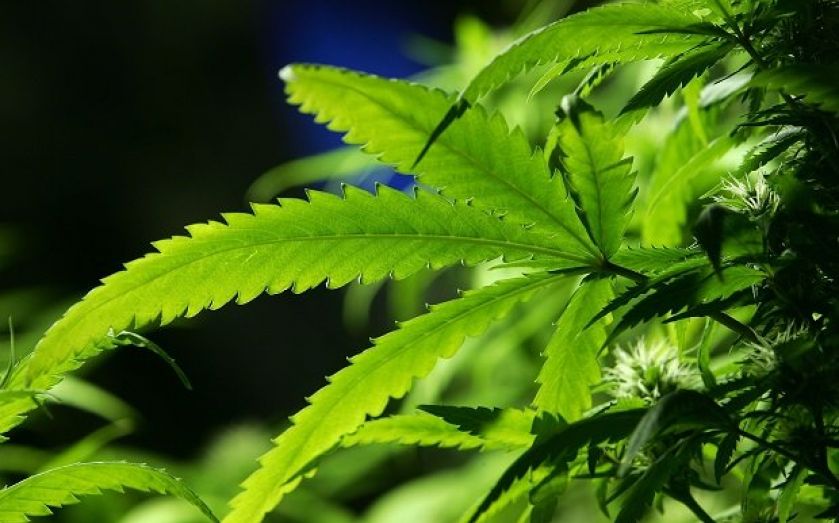Legalise medical marijuana: Colombian President labels war on drugs a failure

Colombia's President Juan Manuel Santos has voiced his support for the legalisation of medical marijuana, which the Colombian congress is expected to vote on later this year.
Speaking at a drugs policy forum, Santos told the audience:
We look favorably on the initiative on the medical and therapeutic use of marijuana.
It's a way to stop criminals from acting as intermediaries between the patient and a substance that is going to ease their suffering.
The use and sale of marijuana are still prohibited in Colombia, but the possession of 20 grams of cannabis was decriminalised in 2012.
While Santos admitted the "war on drugs" had been a failure, he said Colombia would not act on its own in making a major reversal to the policy. The bill was proposed by Liberal senator Juan Manuel Galan, whose father was murdered by cocaine traffickers in 1989.
The news comes as the debate over drug legalisation in the UK is heating up, with Liberal Democrat minister Norman Baker writing to Jeremy Hunt urging the legalisation of cannabis for certain medical conditions. Baker said he was concerned that Britain's restrictive drug laws are forcing people to act outside the law to obtain substances that can relieve suffering.
"There is a growing body of research that shows the medical properties of chemical components of cannabis," he wrote. "I am uncomfortable that there are credible people I have met who tell me that cannabis is the only substance that helps relieve their condition but not only are they stopped from accessing it officially but have to break the law to help their health."
It is not only Lib Dem politicians who think Britain's drug laws are long overdue for reform.
Christopher Snowdon, director of lifestyle economics at the Institute of Economic Affairs (IEA), told City A.M.: "The disastrous prohibition of drugs is falling apart. The legalisation of medical marijuana is a no-brainer and varying degrees of liberalisation in Uruguay, Colorado, Holland and Portugal are gradually undermining the UN Convention on Narcotic Drugs.
"Crucially, this trend is being led by the major supplier countries of South America and by the instigator of the war on drugs, the US. British politicians are lagging behind public opinion in failing to act on drug legalisation. The scourge of prohibition needs to end".
Baker's comments echo those of his leader Nick Clegg who during a visit to Colombia in February said the war on drugs was unwinnable and that "if you are anti-drugs you should be pro-reform".
The intervention comes shortly after the Lib Dems pledged that those caught with drugs intended for personal use would not face a prison sentence should they win next year's general election.
The Lib Dems' proposals bear a similarity to the Portuguese model, which MPs like Julian Huppert have supported for some time.
In 2001, Portugal decriminalised drugs after a massive spike in drug-related pathologies in the 1990s. A decade after the reforms were introduced the number of addicts had halved and Portugal's drug usage rates are now among the lowest in the EU.
Last year, Clegg called for a Royal Commission on drugs, which was promptly rejected by the Prime Minister.
Concern over the failure of drug prohibition has grown since last year's report by the International Centre for Science in Drug Policy (ICSDP) showed price declines in Europe of 51 per cent for cocaine and 74 per cent for heroin between the years 1990 and 2010.